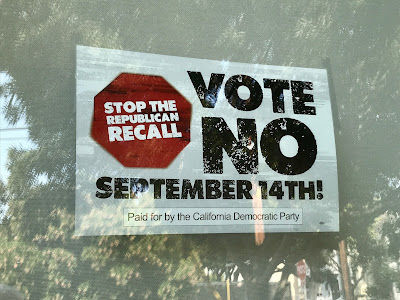It seems only right that we should get our news report of the U.S. departure from Afghanistan by way of a Pakistani English language channel, broadcasting from Kabul. Celebratory gunfire can be heard behind the reporter.
I'm glad the U.S. occupation -- that insult to Afghan humanity and sovereignty -- is over. I can say I never thought this was a right war; as I've argued many times, the right response to the attacks of 9/11 was to apprehend the intellectual authors of the crime and turn them over to the International Criminal Court. But empires don't do that ... instead we tried to remake the world according to U.S. druthers.
When the U.S. invaded Afghanistan, only Congresswoman Barbara Lee and about 7 percent of us objected. But by 2004, many had forgotten the U.S. troops fighting in Afghanistan -- and stopped much caring so long as we didn't have family members serving there. Obama used disgust with the Iraq war to get elected in 2008 -- and boxed himself in to be run over by eager generals because he had labeled Afghanistan, in contrast to Iraq, "the good war." Nothing came of that except more dead people, mostly Afghans.
Foreign policy establishment war hawks, FoxNews personalities, and most Republicans have crawled out of their hidey holes to bash Biden for ending this moral and military abomination. Aside from some security wonks, they'd be cheering if their guy had done the deed -- if you think our exit was a mess, think what Trump would have made of it.
Against the media grain, there has lately been a great deal of interesting punditry arising from the U.S. imperial disasters in Afghanistan and beyond. Ezra Klein, who like most up-and-coming journalists of his generation once thought well of the Afghanistan adventure, is reflective. The best of this cohort have learned ...
“Look at the countries in which the war on terror has been waged,” Ben Rhodes, who served as a top foreign policy adviser to President Barack Obama, told me. “Afghanistan. Iraq. Yemen. Somalia. Libya. Every one of those countries is worse off today in some fashion. The evidentiary basis for the idea that American military intervention leads inexorably to improved material circumstances is simply not there.”
... This is the deep lacuna in America’s foreign policy conversation: The American foreign policy establishment obsesses over the harms caused by our absence or withdrawal. But there’s no similar culpability for the harms we commit or that our presence creates. We are much quicker to blame ourselves for what we don’t do than what we do.
My heart breaks for the suffering we will leave behind in Afghanistan. But we do not know how to fix Afghanistan. We failed in that effort so completely that we ended up strengthening the Taliban. We should do all we can to bring American citizens and allies home. But if we truly care about educating girls worldwide, we know how to build schools and finance education. If we truly care about protecting those who fear tyranny, we know how to issue visas and admit refugees. If we truly care about the suffering of others, there is so much we could do.
Only 1 percent of the residents of poor countries are vaccinated against the coronavirus. We could change that. More than 400,000 people die from malaria each year. We could change that, too.
Paul Waldman pleads for historical perspective. Broadly speaking, U.S. citizens are blithely oblivious to the harm we inflict on other peoples. We are mostly ignorant of war's horrors, unless we or our families have recently escaped one.
But millions of us think that we’ve really helped the people of Cuba, and if we just keep that embargo on for another few decades everything will work out. They think that Iraqis and Afghans appreciate all we’ve done for them. They think that anywhere there’s a dictatorship, people are saying, “What we need is an American invasion.” They think that if a drone strike killed their child, they’d say, “That was regrettable, but they were trying to do the right thing.”
In many ways, we’re still in thrall to the (simplified) story of World War II, that we saved the world and helped it rebuild. But that war ended 76 years ago, and what has happened since shouldn’t give us any faith that tomorrow we can repeat what we did in 1945. The sooner we come to terms with that, the better off we — and the rest of the world — will be.
David Rothkopf, a former Clinton-era official gone rogue on the foreign policy front, has been taking a lot of heat for arguing against the consensus that Afghanistan is a policy disaster.
Biden Deserves Credit, Not Blame, for Afghanistan
If anything, Americans should feel proud of what the U.S. government and military have accomplished in these past two weeks. President Biden deserves credit, not blame. Unlike his three immediate predecessors in the Oval Office, all of whom also came to see the futility of the Afghan operation, Biden alone had the political courage to fully end America’s involvement.... The very last chapter of America’s benighted stay in Afghanistan should be seen as one of accomplishment on the part of the military and its civilian leadership. Once again the courage and unique capabilities of the U.S. armed services have been made clear. And, in a stark change from recent years, an American leader has done the hard thing, the right thing: set aside politics and put both America’s interests and values first.
I will continue to chalk Afghanistan up on the positive side of Joe Biden's ledger.





























